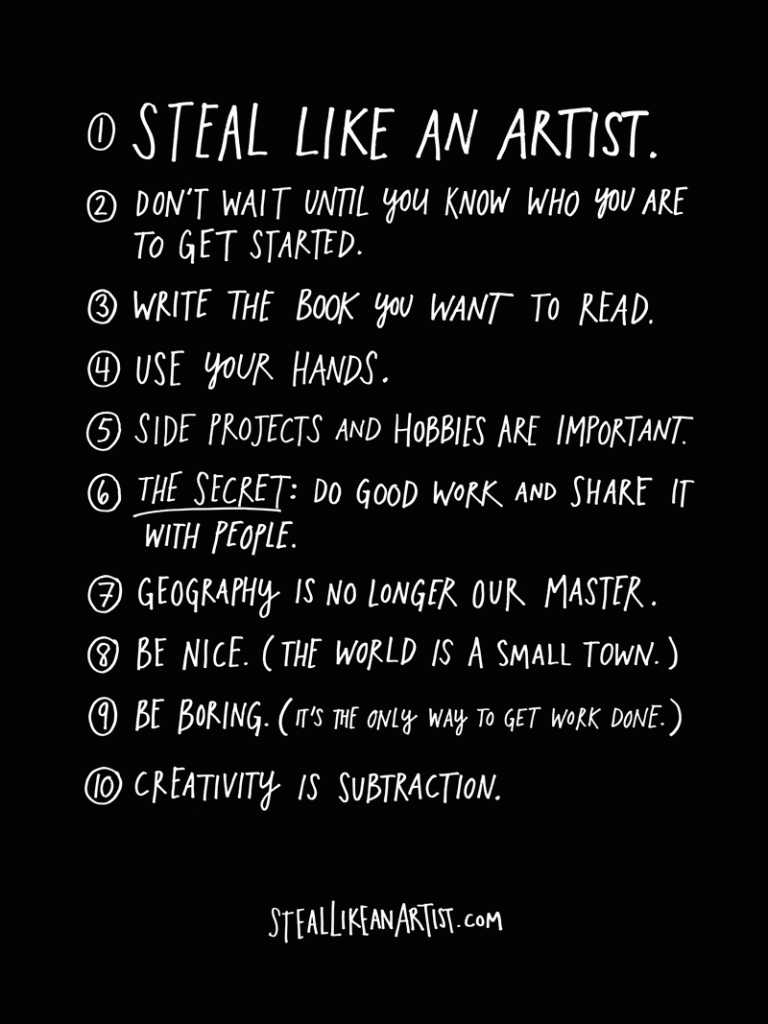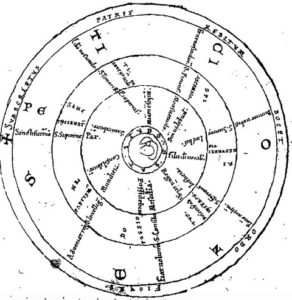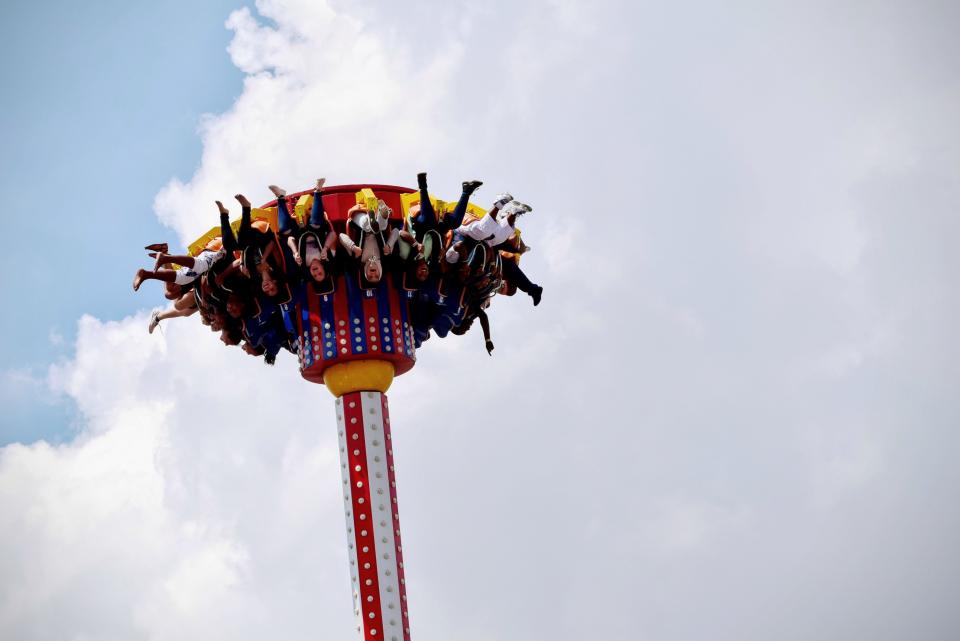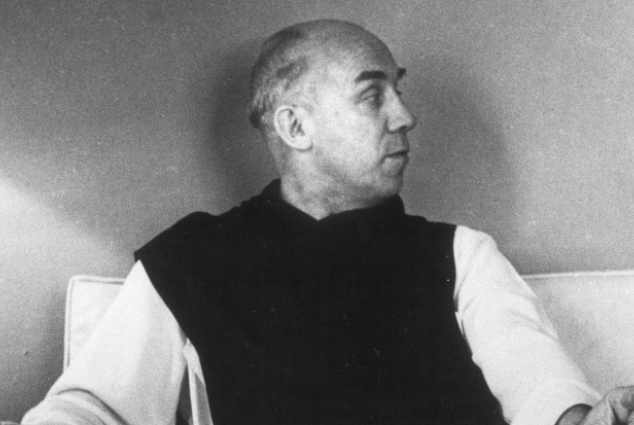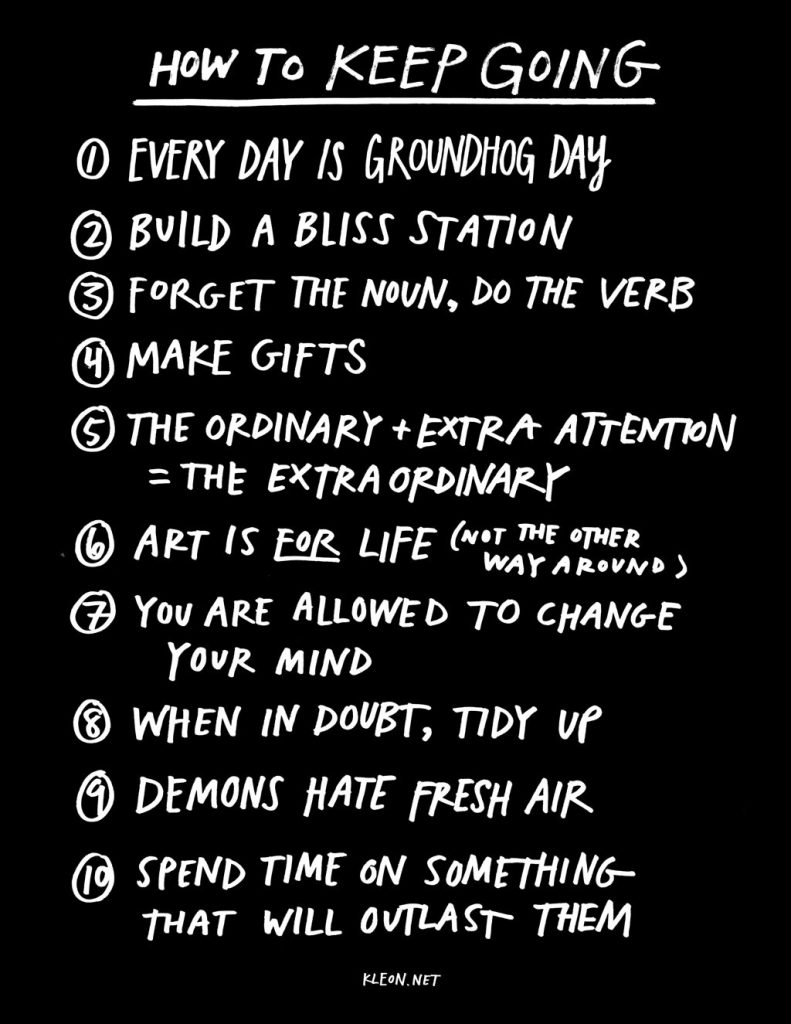
This newest work by Austin Kleon really hit me – at a time I needed it most.
2019 – Move to a new city
2019 – Renting in said city
2019 – Baby turns 1 year old
2019 – New job in city
2019 – New church
2019 – New routine
In the busiest season of our lives, this is a book that can help us grapple with the need to live, grow, and continue in the creative pursuits we started.
If you have a project, a non-profit, a mission, a manuscript, a quilt, whatever it is – let this be an encouragement to finish it.
When you feel stuck in a rut simply ask: What’s next?
Joseph Campbell encouraged what he called “creative incubation” in a safe place. Where is yours?
Kleon talks about the importance of action and says it’s not about being a writer (noun) but following the influence to write (verb).
He also states the importance of making gifts (as play). In a world where we’re trained to heap marketing phrases [even on our friends], our hobbies have been replaced by side hustles. This is never ideal. Remember fun things you did as a kid and revisit those.
Kleon points out Corita Kent’s life as a nun/artist as someone who found joy in everyday life.
There will inevitably be push back from what Jenny Offill calls ‘art monsters.’ And we’re encouraged to slay those monsters and never become one!
Kleon goes on to express the importance of changing our mindset as needed, and if the creative life becomes too cumbersome, to pause and tidy up, as tidying can be a form of exploration.
If the world inside your creative shell is too cramped (and demons are pushing in), he says “to exercise is to exorcise.” The solution: take a walk and get some fresh air. The stuff will be there when you get back to it.
Kleon relates a really interesting story of how gardening is a great example of his final point (Spend Time on Something that Will Outlast Them (meaning those demons). He describes how during the impending conflict of WWII, Leonard Woolf was planting flowers and his wife Virginia Woolf calls out to him (from his book Downhill All the Way) –
“Suddenly I heard Virginia’s voice calling to me from the sitting room window: “Hitler is making a speech.” I shouted back, “I shan’t come. I’m planting iris and they will be flowering long after he is dead.”
Last March, twenty-one years after Hitler committed suicide in the bunker, a few of those violet flowers still flowered under the apple-tree in the orchard.”
It’s vital that we have things that will long outlast the hate, the violence that fuels this consumer-driven world.
My question(s): what is your iris? have you planted it yet?


